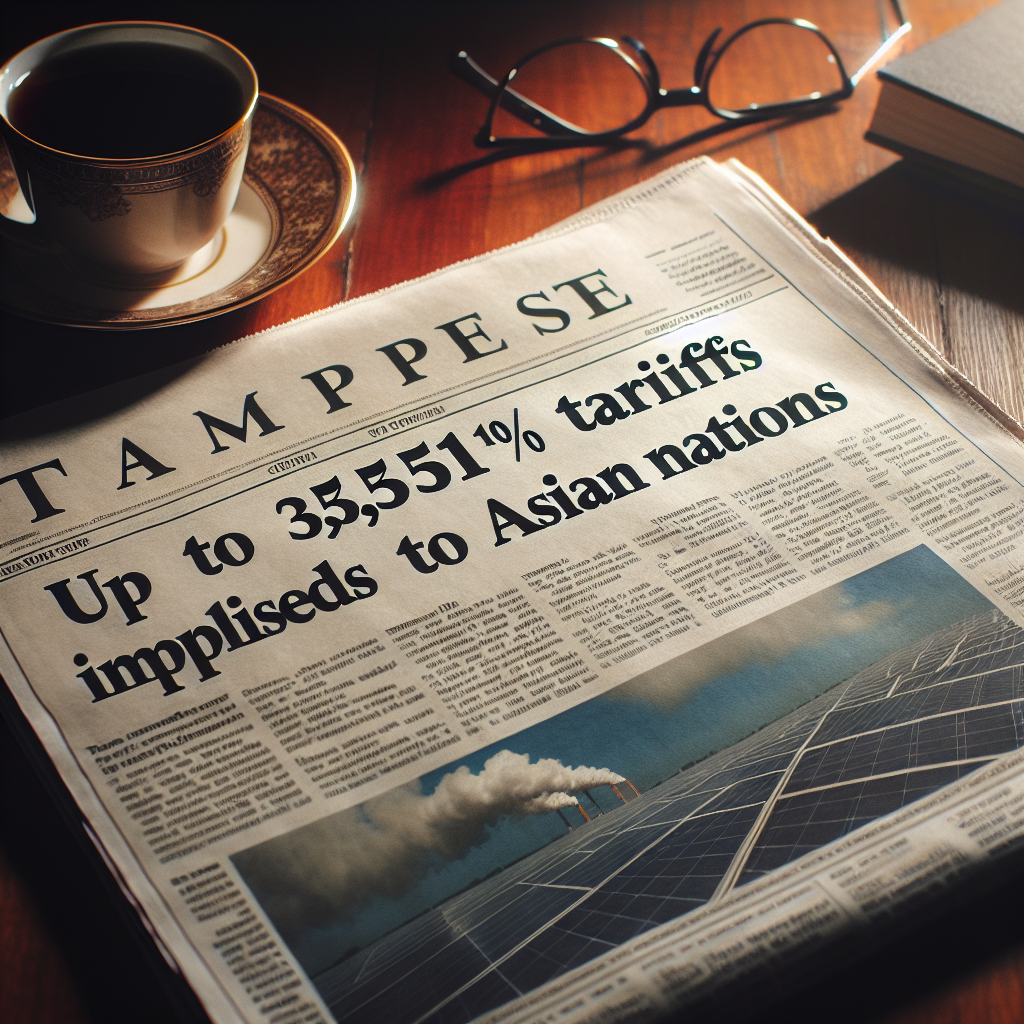US Imposes Up to 3,521% Tariffs on Solar Imports from Asian Countries
US Imposes Up to 3,521% Tariffs on Solar Imports from Asian Countries
Introduction
The United States has announced a significant increase in tariffs on solar panel imports from several Asian countries, with rates reaching as high as 3,521%. This move is part of a broader strategy to bolster domestic manufacturing and address concerns over unfair trade practices.
Key Details
- Targeted Countries: The tariffs primarily affect imports from Malaysia, Vietnam, Thailand, and Cambodia.
- Reason for Tariffs: The U.S. Department of Commerce cited unfair trade practices and the circumvention of existing tariffs on Chinese solar products as the main reasons for the new tariffs.
- Impact on Solar Industry: The tariffs are expected to significantly impact the cost of solar projects in the U.S., potentially slowing down the transition to renewable energy.
- Domestic Manufacturing Boost: The tariffs aim to encourage the growth of the U.S. solar manufacturing sector by leveling the playing field for domestic producers.
Reactions and Implications
The decision has sparked a mixed response from various stakeholders:
- Industry Concerns: Solar industry groups have expressed concerns that the tariffs could lead to increased costs and project delays.
- Environmental Impact: Environmental advocates worry that higher costs could hinder efforts to combat climate change by slowing the adoption of solar energy.
- Political Reactions: The move has been praised by some U.S. lawmakers as a necessary step to protect American jobs and industries.
Conclusion
The imposition of up to 3,521% tariffs on solar imports from Asian countries marks a significant shift in U.S. trade policy, with far-reaching implications for the solar industry and renewable energy goals. While intended to support domestic manufacturing, the tariffs may also pose challenges to the affordability and accessibility of solar energy in the United States.

































